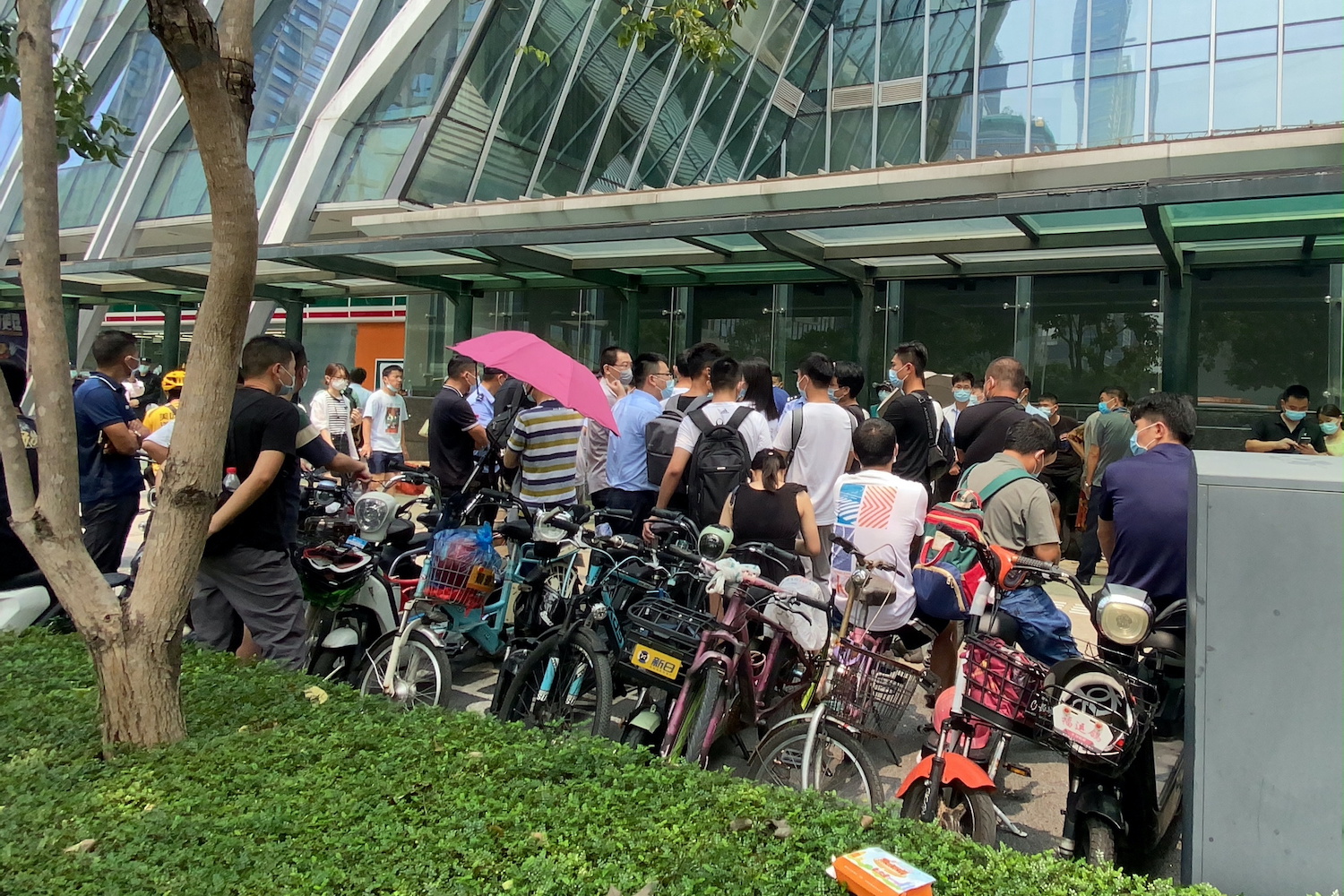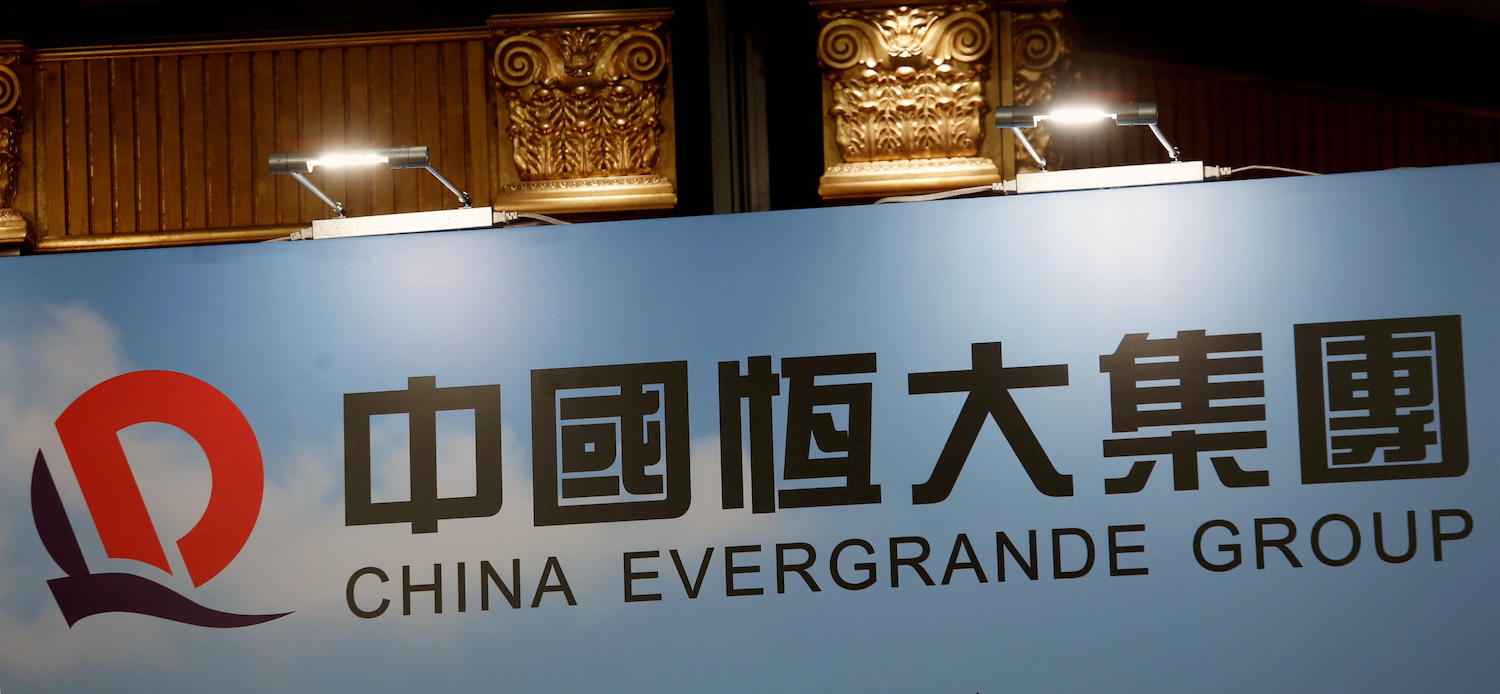Hengda Real Estate Group, the main unit of China Evergrande Group, asked to suspend trading of its onshore corporate bonds following a downgrade as the country’s No-2 real estate developer battles a dramatic liquidity crisis.
The application follows repeated freezes in bond trading in recent days by the Shanghai and Shenzhen stock exchanges due to trading volatility.
With total liabilities of more than $300 billion, Evergrande is looking to raise funds in the balance between a disastrous meltdown with far-reaching impacts, a managed collapse or a government bailout.
Market participants said the suspension of trading in Hendga’s onshore corporate bonds reflects the growing scope for defaults and restructuring.
Hengda received a notice on Wednesday from rating agency China Chengxin International (CCXI) that its bond’s rating has been downgraded from AA to A, and both the bond’s rating and its issuer rating have been placed on a watchlist for further downgrades, it said in a stock exchange filing.
Hengda applied for suspension of trading of its onshore corporate bonds for a day. But when trading resumes on Friday Sept 17, its Shanghai and Shenzhen exchange-traded bonds will be traded through negotiations only.
One bond trader, who declined to be identified, said the change in trading mechanism was aimed at limiting participation and preventing volatility.
“Many companies will adjust the trading mechanism of their bonds prior to default,” he said.
The company’s January 2023 Shenzhen-traded bond was quoted at 24.99 yuan on Wednesday, and its Shanghai-traded May 2023 bond traded at 30 yuan.
‘Defaults priced in’
Evergrande defaults are largely priced in the market, and the recovery ratio is likely to be lower in the case of an expected restructuring, James Shea, a distressed debt analyst at credit analytics provider Reorg, said.
“The market is pretty certain that Evergrande will default,” Shea said. A very low recovery ratio would be due, partly because of deep losses in many of Evergrande’s secondary businesses, which make them difficult to liquidate, he said.
Major institutional note-holders of China Evergrande are said to be organising an adhoc group and have reportedly chosen Kirkland & Ellis and Moelis & Co as their advisors ahead of the expected nonpayment of about $130 million of bond coupons due on Sept 23 and Sept 29, according to sources familiar with the matter.
Sidley Austin is expected to be the Chinese property developer’s legal advisor due to the law firm’s involvement in the issuance of Evergrande’s offshore notes, the sources said.
A report from CreditSights this week said the chances of liquidation were slim if Evergrande defaulted.
A Shanghai-based Vulture bond fund manager specializing in junk-rated bonds said that if Evergrande’s bonds fell below 20 cents on the dollar, the valuation would be attractive to patient investors because restructuring could take years.
In the offshore market, Evergrande’s 8.75% June 2025 bond was trading at 29.375 cents on Thursday morning, nearly 4 cents higher than Wednesday’s low, according to financial data provider Duration Finance.
Goldman Sachs said in a report that because Evergrande has dollar-denominated bonds issued by both the parent company and a special purpose vehicle, recovery in a potential restructuring could differ between the two sets of bonds, and any potential restructuring would prolong the process.
Concerns about Evergrande’s potential transition from the debt crisis have spread to other Chinese high-yield issuers. The index of Chinese high-yield dollar debt fell to 374.646 on Thursday morning, the lowest level since April 14, 2020.
CCXI’s downgrade of the developer was the second this month. The downgrade of Evergrande and its onshore bonds from AAA to AA on September 2 resulted in the bond being ineligible for pledged repo trading.
Rating agency S&P this week further downgraded Evergrande from “CCC” to “CC” with a negative outlook, citing low liquidity and default risks, including the possibility of debt restructuring, while Fitch said the Evergrande default could expose several sectors to increased credit risk.

Protesters taken away
Meanwhile, security personnel in Shenzhen took away protesters who gathered on Thursday outside the Evergrande headquarters. Disgruntled investors plus vendors who say they are owed money have gathered at the company headquarters in the southern city this week and reportedly elsewhere in China.
“Every day we’re here waiting for some sort of policy for us but nothing comes, so we have no choice but to stay,” one protester said.
Uniformed security could be seen detaining at least two among about two dozen protesters and forming a circle around those who remained, locking arms so that none could leave while the two were taken away.
Security personnel responded to sporadic chants of “Evergrande return our money” by waving a banner that said “police evidence” while an officer filmed the protesters who were shouting.
During a thunderstorm, a crying woman who was sitting among remaining protesters and approaching security personnel was carried away to a nearby police van.
On Monday, about 100 protesters crowded into the company’s lobby to demand repayment of loans and financial products.
• Reuters and Jim Pollard
This report was updated on Sept 16.
























